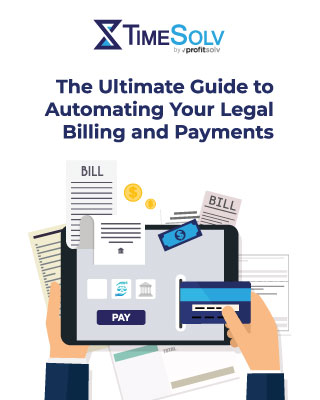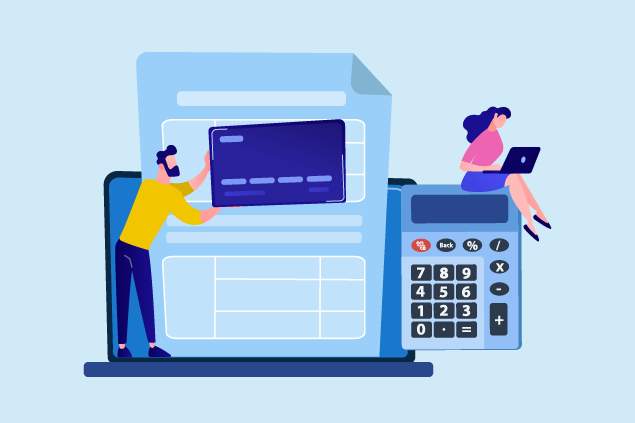While 84% of law firms now accept online payments via credit cards—and enjoy easier record-keeping, faster payments, and increased revenue as a result—many firms continue to miss out on the far-reaching benefits of digital payment processing.
Historically, the legal industry has been slow to adopt new technology. While there are numerous factors at play, a big one is compliance concerns. But law firms that choose not to store a card on file (CoF) for their clients are missing out on a more efficient payment process, and the chance to minimize late and missed payments.
They’re also failing to meet modern clients’ expectations for effortless payments.
With the right legal-specific software, though, law firms can rest assured that accepting online payments is as compliant as it is convenient (especially when it involves keeping client cards on file).
Five ways your law firm can benefit from keeping credit cards on file
Whether your legal practice offers payment plans or evergreen retainers or simply provides multiple legal services to the same clients, there are plenty of reasons to choose a payment processor that gives CoF features.
1. Eliminate billing errors
Manually typing (and re-typing) payment information is more than redundant. It poses risks like:
- Increased likelihood of data entry errors
- Lengthened billing cycles
- Increased client stress
- Decreased client trust and satisfaction in your firm
Keeping a card on file ensures that the proper card information is readily available for every transaction, which minimizes costly errors.
2. Get paid faster
People procrastinate on tasks that are inconvenient or complicated. It’s human nature. But regarding your law firm’s cash flow, “human nature” can be a big hurdle. If your payment process is too cumbersome, clients can become resistant to paying their bills.
And even if they’re happy to make a payment, they may encounter user errors such as accidentally timing out of the payment portal before their payment has been processed. Payment can even be delayed for reasons as mundane as their credit card being in the other room!
Storing a card on file ensures quick, error-free payments, so clients can avoid late fees and you can get paid faster.
3. Reduce outstanding bills
Law firms that offer recurring billing enjoy a more predictable cash flow. When you use CoF features at your legal practice, you no longer need to rely on clients to pay their bills manually. With your client’s permission, you can implement automated billing and run all client payments automatically on the same day each month.
With this approach, there’s no waiting—and no outstanding bills.
The Ultimate Guide to Automating Your Legal Billing and Payments
To stay competitive in today’s legal landscape, law firms must embrace the power of technology, especially when it comes to billing and payments.
The best way to improve your law firm’s cash flow while also increasing client convenience is 'Automation'.
Download our free guide to improve your legal billing and payment process today!
4. Support greater client satisfaction
Seeking (and paying for) legal assistance can be stressful. And submitting multiple checks or repeatedly entering lengthy card numbers for every transaction only compounds the feeling. Even clients who are comfortable with the financial aspect may struggle with technology or have limited time to devote to billing and payment.
Storing a card on file reduces the time spent on payment and eliminates the need to remember due dates. Adding this simple convenience to the payment process goes a long way toward increasing client convenience and improving their overall experience with your law firm (which leads to more referrals and positive reviews!).
5. Secure sensitive information
Many firm leaders cite security and ethical concerns as primary reasons not to store client card information. However, improvements in the security features of payment processing technology have evolved to meet these concerns head-on.
Note, however, that not every payment processing software is legally industry-friendly and fit to store sensitive client information. Attorneys have an increased duty to protect client payment information, so your firm needs payment processing software specifically designed to meet ABA and IOLTA guidelines.
TimeSolvPay does just that with a Level 1 Service Provider Certification and strong security features, such as 256-bit SSL encryption.
Additional measures like strict access controls that only allow legal staff to access client card information on a need-to-know basis offer additional protection.
How to successfully implement CoF at your law firm
CoF has plenty to offer to your firm and your clients. Still, implementing it in a way that is mindful of compliance and inspires confidence in your clients takes some care.
Before offering to keep any additional client information on file at your firm, evaluate your options for doing so securely and ethically. From there, make sure you communicate with your clients about exactly which information you plan on storing and how it will be used.
Create a CoF policy for your legal practice
Even in this age of digital commerce where pharmacies, doctors’ offices, and even grocery delivery services store client information online, clients will have questions about keeping a card on file with your firm. A clear and streamlined CoF policy is essential to build trust with your clients and helping them feel protected against identity fraud and theft.
Your firm’s CoF policy should be written in clear and concise language that is easy for clients to understand and include basic information, such as:
- Your law firm’s fee structure and payment practices
- What a client should expect before and after their card is charged (i.e. when to expect an invoice, receipt, etc.)
- A confidentiality policy detailing the steps your firm takes to protect sensitive client information, including credit card numbers
- The steps clients should take to file a dispute if a client believes their card has been charged incorrectly
- Contact information for your law firm and the client’s attorney
Be sure to review and update your policy regularly to ensure that it’s up to date and meets all relevant rules and regulations.
Use a PCI-compliant payment processor that specializes in legal payment processing
A payment processor that is Payment Card Industry (PCI) compliant should offer additional security protocols to protect stored card information from theft or fraud. But that’s not enough on its own.
The American Bar Association (ABA) and Interest on Lawyer Trust Accounts (IOLTA) program have also set forth measures that attorneys must take to compliantly accept electronic payments from clients. In addition to following PCI regulations, it’s also crucial that your payment processor follow these ABA and IOLTA rules when storing client card information.
Get started today with TimeSolvPay
Keep client card information on file with confidence. TimeSolvPay is specifically designed to make legal payment processing secure, efficient, and effortless from start to finish.
Position your firm to receive the full benefits of online payments by scheduling a meeting to discuss TimeSolvPay today.
The Ultimate Guide to Automating Your Legal Billing and Payments
To stay competitive in today’s legal landscape, law firms must embrace the power of technology, especially when it comes to billing and payments.
The best way to improve your law firm’s cash flow while also increasing client convenience is 'Automation'.
Download our free guide to improve your legal billing and payment process today!


















